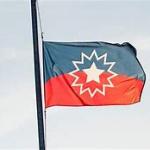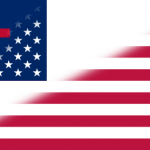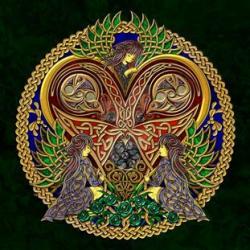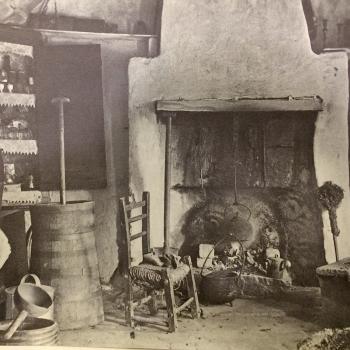In places like Ireland and Scotland, the ocean was a major part of life. It should come as no surprise that many prayers and incantations for the sea were common. Carmichael, in his book Carmina Gadelica explains that these likely originated with “early Celtic missionaries, who constantly traversed in their frail skin coracles the storm-swept, strongly tidal seas of those Hebrid Isles, oft and oft sealing their devotion with their lives.
A Prayer for Protection on a Perilous Journey
Before leaving on a journey on the ocean, those who made make the perilous journey would gather around the vessel, praying to the God of Elements for a peaceful voyage. “The steersman led the appeal, while the swish of the waves below, the sough of the sea beyond, and the sound of the wind around blended with the voices of the suppliants and lent dignity and solemnity to the scene.”
As a 21 year sailor who spent almost 8 years of life underwater on submarines I can certainly speak to the desire for a peaceful journey. The sea is both a beautiful sight and a terrifying force. I can only imagine braving its terrible beauty on a ship made of wood and canvas, rather than steel. Those who dare ride the sea are some of the bravest I have ever known.
Carmichael further explains:
There are many small oratories round the West Coast where chiefs and clansmen were wont to pray before and after voyaging. An interesting example of these is in the island of Grimisey, North Uist. The place is called Ceallan, cells, from ‘ceall,’ a cell. There were two oratories within two hundred yards of one another. One of the two has wholly disappeared, the other nearly. The ruin stands on a ridge near the end of the island looking out on the open bay of Ceallan and over the stormy Minch to the distant mountains of Mull and Morven.
The oratory is known as ‘Teampull Mhicheil,’ the temple of St Michael. The structure was simple but beautiful, while the remains are interesting and touching from their historical associations. Tradition says that the oratory was built by ‘Eibhric’–Euphemia or Amie, sole daughter and heiress of Ruaraidh, the son of Alan, High Chief of Lorn.
The Ocean Blessing
| GOD the Father all-powerful, benign, Jesu the Son of tears and of sorrow, With thy co-assistance, O! Holy Spirit. The Three-One, ever-living, ever-mighty, everlasting, Who brought Paul and his companions in the ship, When the storm poured on the Sea of Galilee, Sain us and shield and sanctify us, With winds mild, kindly, benign, pleasant. We ask all things of Thee, O God, |
The Celtic “Niche”
This particular poem follows the normal flow of an incantation or blessing from around this time period. But what, and how, something is said tells us the nuances of the Celtic faith. For example, we see the deep level of commitment to the doctrine of the Trinity. We see that all are regarded as God, however there are specific roles and purposes for each personhood of the Trinity. This deep acceptance of Trinity was an easy way for the Celts to understand God, as they had specific gods for specific places and purposes in the religion they came from.
There is a high reverence not only for scripture but for its application to daily life. Notice the use of themes and events from the Old Testament where God has acted on behalf of those God loves. They then lean on the New Testament where they discuss Paul’s perilous journey and the faithfulness of God in that trial.
An Invocation of Purpose and Protection
It seems that when the Celts invoke God, they say, “Lord we acknowledge you are more than capable of protecting us, and we trust you to do it here.” God is referred to as The King of Elements. This is indeed a high and exalted name when given by a people who held the creation of God sacred and powerful. In this title they acknowledge God is Lord over the shear power of the ocean, and every other thing on the planet.
Like the Celts, it would do us well to remember how powerful a God we serve. But as in the last sentence of this prayer, it is also important to remember, that Gods will be done. One of the hardest things for us to fathom is that God has purpose in pain. But God also has purpose in our peace.
Stop Asking, Start Doing
Maybe instead of praying to God a laundry list of things we need, we just acknowledge and trust God. As a people, Christians tend to treat prayer like a trip to Santa at the mall. We ask and ask but never acknowledge. Maybe if we simply acknowledged the Lord of Elements, we would realize the our hope isn’t in what God can do for us, but what can be done through us. As the powerful ocean brings life to the world, so should our God given spirit also bring life to God’s creation. Stop Asking Start doing.












